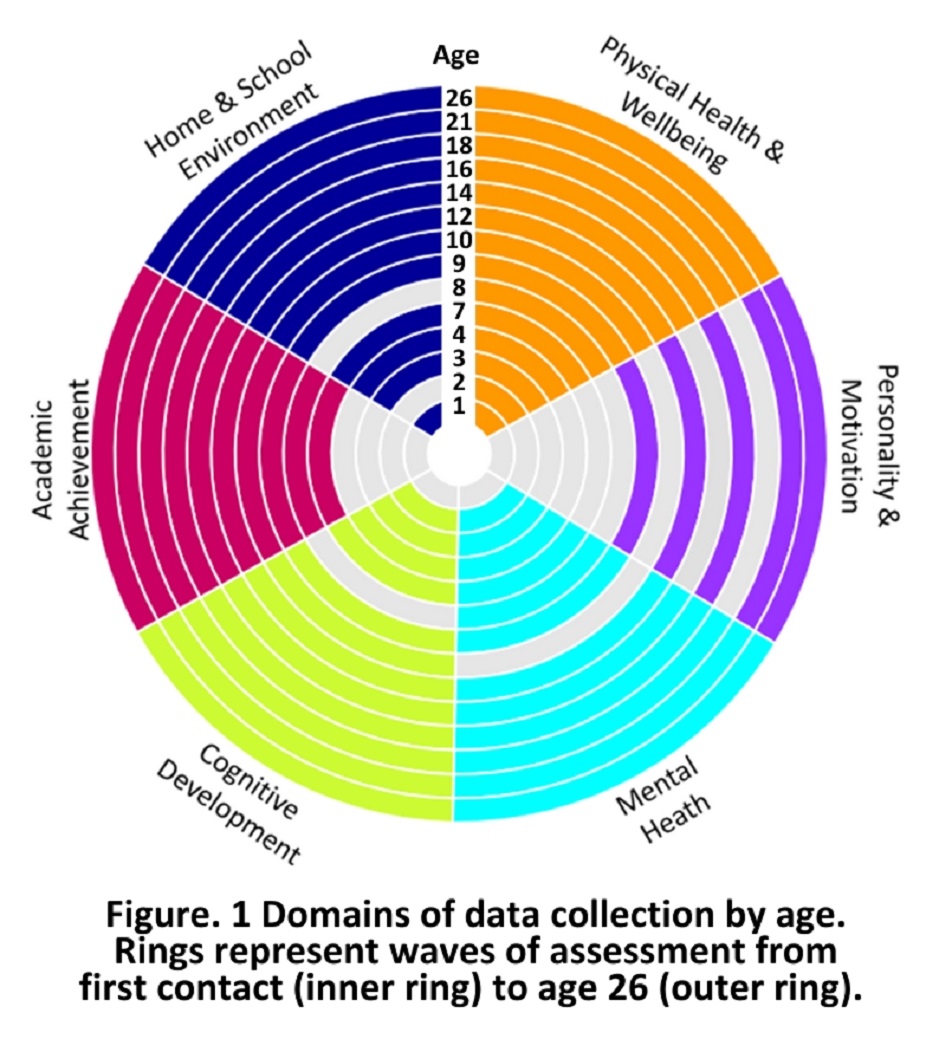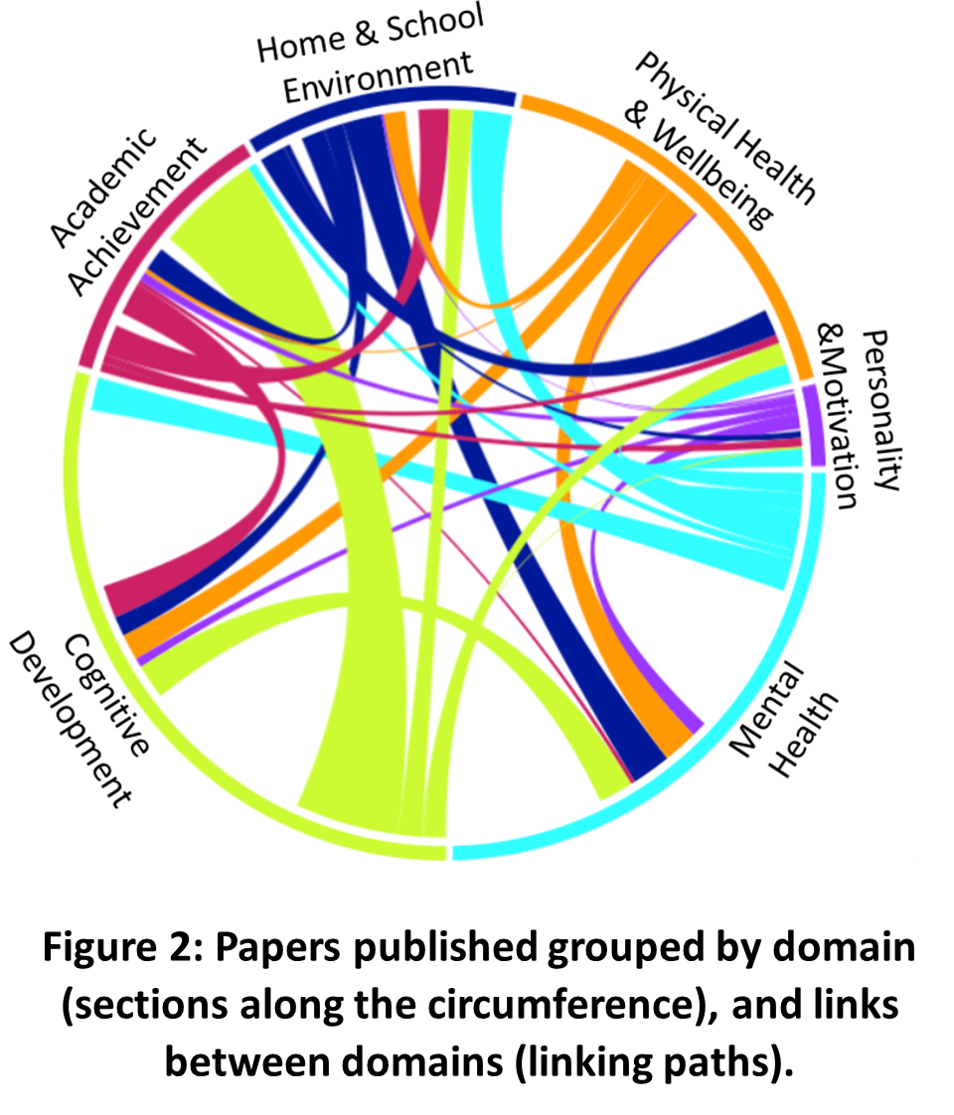TEDS Research


The Twins Early Development Study focuses on investigations of how genes and environments act together to shape who we are, as we develop from early childhood through to adulthood. We have a sample of over 10,000 twin pairs who were born in England and Wales between 1994-1996. We hold additional genotypic data on a subsample of over 10,000 individuals; 7000 of whom are unrelated.
TEDS first collected data from participating families when the twins were 1.5 years of age. Since then, we have collected data 13 times, at least once every two years. The current wave of data collection began at age 21. As figure 1 illustrates, we have an extensive number of measures in our sample, spanning six broad domains; a full breakdown of the measures can be found in our data dictionary, and information about how to access the data is provided below.
We are proud of the far-reaching impact that TEDS research continues to have. TEDS data have contributed to over 400 papers. These span the domains of cognition, school achievement, home and school environment, health and wellbeing, personality, and mental health. Figure 2 illustrates the distribution of TEDS scientific outputs across these domains, as represented by the proportions of the chart’s outer circle. In this figure, the flows between domains represent the proportion of publications which have studied multivariate relationships between phenotypes.
The breadth of the TEDS dataset allows researchers to approach investigations from numerous methodological approaches. Twin analyses are commonly used across our publications, and DNA-based methods are becoming ever-more prevalent in contemporary TEDS research. We are particularly excited by the availability of polygenic scores – personalised indicators of an individual’s genetic liability towards a designated trait. More information on genetic research and polygenic scores can be found here.
We welcome, and are eager to collaborate with, new researchers who are interested in conducting investigations using the TEDS resource. TEDS data have featured in investigations led by over 140 researchers from 50 research institutions. As the field of behavioural genetics includes many different disciplines – from the life sciences as well as the behavioural sciences – our collaborators bring their interdisciplinary expertise to bear on analyses of the TEDS dataset.
